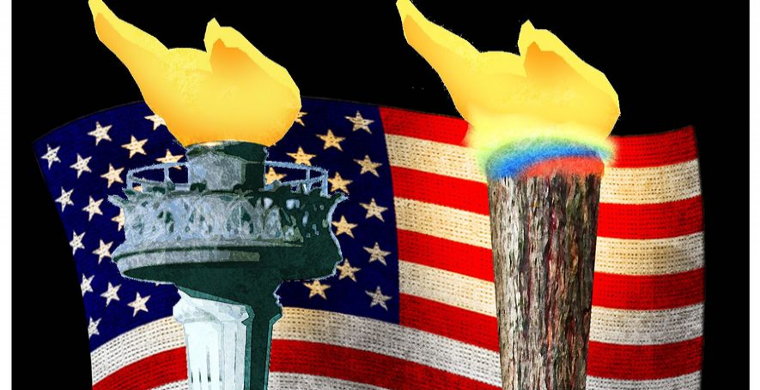Harper's letter against 'cancel culture' is welcome and overdue
ANALYSIS/OPINION
By Os Guinness
https://www.washingtontimes.com/news/
July 13, 2020
On July 7, Harper's magazine published a powerful "Letter on Justice and Open Debate" signed by 153 prominent authors, artists and intellectuals. After an obligatory shot at President Trump, the letter makes the case against the growing censorship known as "cancel culture."
A key sentence: "The free exchange of information and ideas, the lifeblood of a liberal society, is daily becoming more constricted."
The Harper's letter is welcome and surely overdue. If, as they admit, writers and scholars don't defend the very thing on which their work depends, who will? It was welcome for another reason too. Western leaders in both Europe and the United States have been slow to speak out clearly in defense of the ideas and ideals that have made our countries the desired destination for oppressed peoples. Americans are a people who, more than any others, except the Jewish people, are a nation by intention and by ideas. So, the silence has been deafening -- and revealing.
The next step must be to go beyond the concern for the "cancel culture," and call for a thorough examination of all the major differences between the ideals of the American experiment and the claims and demands of the progressive left. In essence, America's choice is between the ideas and ideals of 1776 and the American Revolution versus those that have come down from 1789 and the French Revolution.
There are striking contrasts at many points, and in each case the differences make a world of difference. Their sources are opposed. One comes from the 17th century rediscovery of the Exodus revolution, and the other from the French Enlightenment. Their attitudes toward humanity are different. One insists on checks and balances because of human corruptibility, and the other follows Rousseau's utopianism. From such foundational contrasts, the differences flow out across society in divergent understandings of freedom, justice, law, constitution -- and the way to remedy wrongs.
All this plays into America's open wound today. The flaws, failings and betrayals of America's ideals have been laid bare for the world to see. But as this happened, a further difference between "1776" and "1789" stands out. There is no mercy or forgiveness in the progressive left. Without the realism that mercy takes into account, and without the freedom that forgiveness makes possible, there can be no restoration of true justice, and no freedom at all when the scorched earth warriors have finished.
All sides must acknowledge the injustices and the genuine victims, both past and present. But how are they to be remedied? For the progressive left, the tools are postmodernism and critical theory, which converge on the centrality of power.
To liberate society, they analyze everything according to "pyramids of power" -- majority and minority, superior and subordinate, oppressor and oppressed. They then confer "victim" status on the oppressed, and "weaponize" it in the struggle to overthrow the dominant power. In their focus on groups, rather than individuals, their tactic is a variant of "divide and rule." Sexes, races, classes and generations are set against each other, destroying the harmony essential for social stability.
The ruthlessness enters at this point. The left has a catalogue of "sins" to satisfy the most zealous Inquisitor, but no forgiveness for sin. It castigates people for anything construed as racism, sexism and homophobia, and for those accused there is no way back. The Twitter mob is merciless, the justice of the agitators is insatiable, and those deemed sinners and their statues must fall. Yesterday's "Let justice be done, though the earth perish" has become today's "burn it down."
The way of reformers such as Abraham Lincoln, Frederick Douglass, Booker T. Washington and Martin Luther King Jr. is magnificently different. Shaped by the Hebrew and Christian understanding, its realism about human nature, its prophetic outrage against injustice, its passion for human dignity, and its insistence on genuine repentance, confession, forgiveness and reconciliation are stunning. For all who love freedom, true mercy and forgiveness are essential and anything but cheap grace. For the one who forgives, it means the freedom to act and not simply to retaliate; and for the one who is forgiven, it means the freedom of a second chance and an open future.
As history shows, there are ways to fight for justice and freedom that end in stronger justice and richer freedom, and there are ways that end in anarchy and despotism. As in Lincoln's time, "A house divided against itself cannot stand." America cannot endure, permanently half-1776 and half-1789. All down the line, America must make its choice.
Os Guinness, an Englishman, lives in McLean, Virginia. His most recent book is "Last Call for Liberty: How America's genius for freedom has become its gravest threat."














